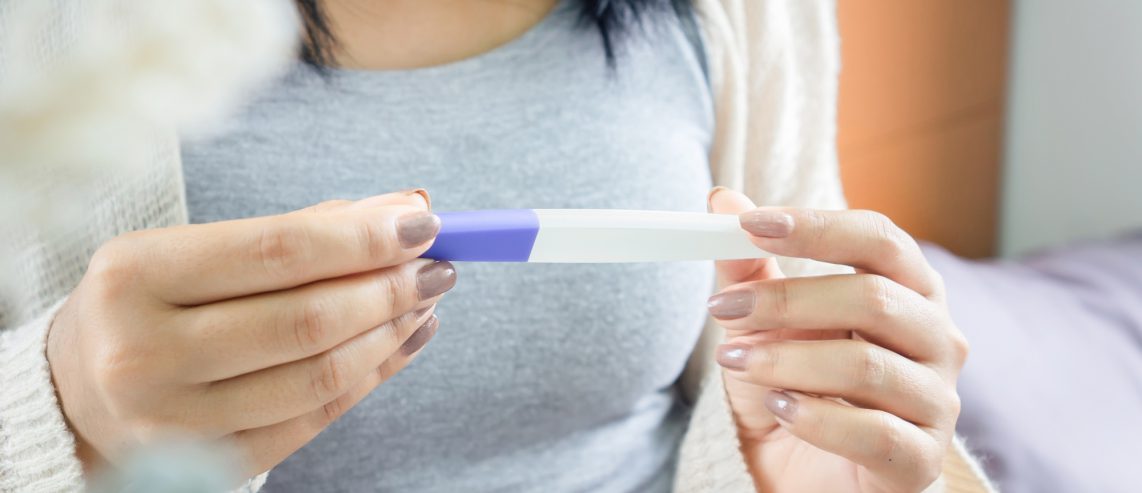The best time to take a pregnancy test is on or after the first day of a missed period. Some pregnancy tests may show a positive before a missed period, but there is no guarantee.
Pregnancy tests aren’t accurate right after sex, because they measure human chorionic gonadotropin (hCG). This is a hormone that’s only produced after the fertilized egg implants in the uterus.
It can take several days for the sperm and egg to meet after sex. Then, it takes about six more days for an embryo to implant in the uterus.
So implantation might not happen until around 10 days after sex or a fertility treatment.
The body begins to produce hCG once the embryo implants, and your hCG level will continue to rise over the next eight to 11 weeks. At first, the amount of the hormone may be too low for a urine test to detect. It can take a week after implantation for levels to be high enough for a test to detect them.
When Should I Take a Pregnancy Test If I Don’t Have a Regular Cycle?
Perhaps your period is irregular, or you don’t know when your next period should start because you’re not tracking your cycle. In this case, your test will most likely be accurate if you test 3 weeks after unprotected sex.
Symptoms might also trigger a pregnancy test. Most women don’t have symptoms of pregnancy in the first few weeks after a missed period. But some women may experience symptoms like nausea (especially in the morning), food aversions, sore breasts, and fatigue.
Never Miss a Beat!
Subscribe to Our HealthBeat Newsletter!
Thank you for subscribing!
You can now select the specific newsletters you'd like to receive.
You are already subscribed.
Subscribe to more newsletters in our email preference center.
Sorry, an error occurred. Please try again later.
Get Healthy Tips Sent to Your Phone!
How Accurate Are Pregnancy Tests?
At-home pregnancy tests are accurate when negative about 95% of the time. Recent research shows that false negatives are possible with home urine tests 5% of the time, even if taken a week or more after a missed period.
Both the expensive at-home tests and the cheaper ones are equally accurate if taken at the time of an expected period. However, some of the more expensive tests are slightly more sensitive. They claim to reveal a pregnancy up to five days before an expected period.
While this is possible, it depends on how quickly your hCG levels rise. If you test negative, you should test again on the day of your expected period.
In addition, up to 10% of women will need to wait several days to one week after a missed period to get a positive result. This is because they ovulate later in their cycle, which means the embryo implants later — and hCG levels rise later.
What About False Positives?
False positives can happen if the blastocyst (the name for a matured embryo) begins to implant but doesn’t fully implant in the uterus. This can cause hCG levels to rise high enough for a home pregnancy test to detect, even though there is no pregnancy. This is also called a chemical pregnancy.
If you have a chemical pregnancy, your period may be late by a few days or a week. Your doctor can also test your blood to measure the levels of hCG. If they are very low, a chemical pregnancy is likely.
Some medications or a recent abortion can also cause a false positive pregnancy test.
What Do I Do If My At-Home Pregnancy Test Is Positive?
If you have a positive at-home pregnancy test, you should make an appointment with your doctor. They can confirm it with a blood test. They can also conduct an ultrasound at six to seven weeks to confirm the viability of your pregnancy.
If you are, indeed, pregnant, your doctor can walk you through how to proceed. Getting medical confirmation of your pregnancy early on will help you get the health care you need as quickly as possible.
Sources
Tamara Bhandari. Flaw in many home pregnancy tests can return false negative results. Link
Lindsay Kneteman. Are dollar store pregnancy tests accurate? Today's Parent. Link
Dr. John Cunha. How soon will a pregnancy test read positive? emedicinehealth. Link
Office on Women's Health. Pregnancy Tests. Link
Pregnancy Tests. Planned Parenthood. Link
What To Expect. Chemical Pregnancy. Link
7 causes for a false positive pregnancy test. Healthline. Link
About UPMC Magee-Womens
Built upon our flagship, UPMC Magee-Womens Hospital in Pittsburgh, and its century-plus history of providing high-quality medical care for people at all stages of life, UPMC Magee-Womens is nationally renowned for its outstanding care for women and their families.
Our Magee-Womens network – from women’s imaging centers and specialty care to outpatient and hospital-based services – provides care throughout Pennsylvania, so the help you need is always close to home. More than 25,000 babies are born at our network hospitals each year, with 10,000 of those babies born at UPMC Magee in Pittsburgh, home to one of the largest NICUs in the country. The Department of Health and Human Services recognizes Magee in Pittsburgh as a National Center of Excellence in Women’s Health; U.S. News & World Report ranks Magee nationally in gynecology. The Magee-Womens Research Institute was the first and is the largest research institute in the U.S. devoted exclusively to women’s health and reproductive biology, with locations in Pittsburgh and Erie.
